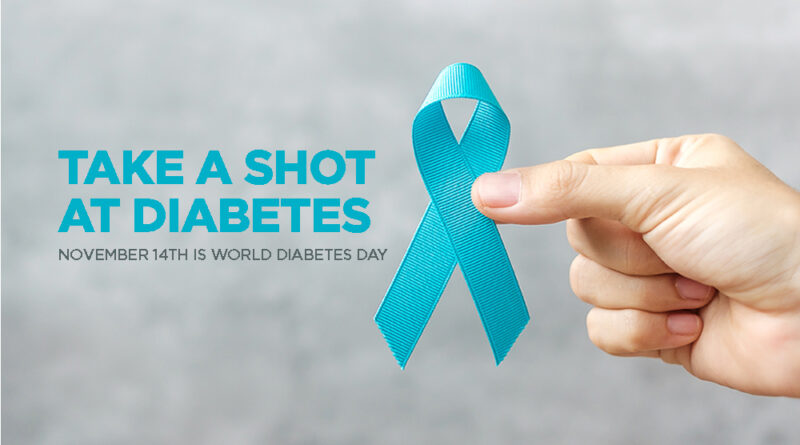World Diabetes Day + Five Grants to Support the Fight
In 2018, 34.2 million Americans, approximately 10.5 percent of the population, had diabetes, according to the American Diabetes Association. On top of this, an additional 1.5 million Americans are diagnosed with diabetes every year.
And as the diabetes crisis continues worldwide, it is important to continue to fund initiatives focused on the treatment and prevention of the disease. World Diabetes Day falls on Nov. 14 and is a day of global action day where people with diabetes, health professionals and advocates can come together to spread awareness of the issue. And in honor of the day, GrantWatch is sharing five grants below to help the fight.
In the year 2000, the global estimate of adults 20-79 around the world living with diabetes was 151 million. And now, over 21 years later, that number has reached 463 million far outpacing the projections made in 2010. But that number doesn’t even include the 1.1 million children and adolescents living with type 1 diabetes. And even worse, future projections include 578 million adults with diabetes by 2030, and 700 million by 2045.
How to Help
World Diabetes Day is a day of global action day where people with diabetes, health professionals, diabetes advocates, media, the general public and government organizations come together on this critical issues. According to the International Diabetes Foundation, interested people can participate by:
- Engaging a local or national policy-maker to ensure that all people with diabetes have access to the care they need.
- Organizing a ‘Learn about diabetes’ event in schools.
- Organizing or participating in a local diabetes awareness walk.
- Lighting up a local landmark, your home or workplace in blue.
- Arranging an activity with your work colleagues.
- Helping people learn their potential risk of type 2 diabetes with this online test.
What does it mean for someone to have diabetes?
There are two types of diabetes. Type one diabetes is thought to be an autoimmune condition. In type one, a person’s immune system mistakenly attacks the beta cells in the pancreas that produce insulin. This damage is permanent. Type one diabetes is thought to either be caused by environmental and/or genetic reasons. However, unlike type two there’s no lifestyle factors at play.
The second, and most common type of diabetes is type two diabetes. Type two diabetes starts out as insulin resistance (also known as pre-diabetes), which means that your body cannot utilize insulin properly. This prompts your body to produce more insulin until it can no long keep up with demand, Eventually insulin production decreases which leads to high blood sugar. While the exact cause of type two diabetes is uknown, genetics, lack of exercise, and obesity may all be contributing factors.
There is also a type of diabetes that occurs during pregnancy called gestational diabetes. This occurs because of insulin-blocking hormones that occur during pregnancy.
Some symptoms of diabetes include:
- Excessive thirst and hunger
- Frequent urination
- Drowsiness or fatigue
- Dry, itchy skin
- Blurry vision
- As well as slow-healing wounds
Long term issues resulting from untreated diabetes can be severe. Potential complications can include eye issues, higher rates of skin infections, kidney damage, and type two diseases can increase your risk of Alzheimer’s. And high-sugar levels can lead to several complications in pregnancy. With this in mind, it’s obvious how dangerous rising numbers of this disease are.
Five Grants for World Diabetes Day
- Firstly, there are are grants available to U.S., Canada, and International Organizations for diabetes advocacy, care, and prevention in developing countries.
- And there are also grants available to Louisiana nonprofits to address community needs. Focus areas include but are not limited to: heart disease, diabetes, mental health, obesity, and disparities in access, quality, or cost.
- There are grants available to Canada charitable organizations for diabetes prevention care, arts and culture, and economic development programs.
- Additionally, there are grants to U.S. and territories nonprofit organizations, for-profits, government agencies, IHEs, and others for research related to obesity, specifically in relation to diabetes.
- Finally, there are in-kind support grants available to Alaska medically vulnerable residents to mitigate hardships caused by the Coronavirus.
GrantNews Notes
If you’re looking for more grants to fund projects to help with community health issues, check out GrantWatch. There are categories for health and medical grants as well as research and evaluation.
And make sure to sign up for a paid subscription to GrantWatch to gain access to all of our tools for grant seekers.

